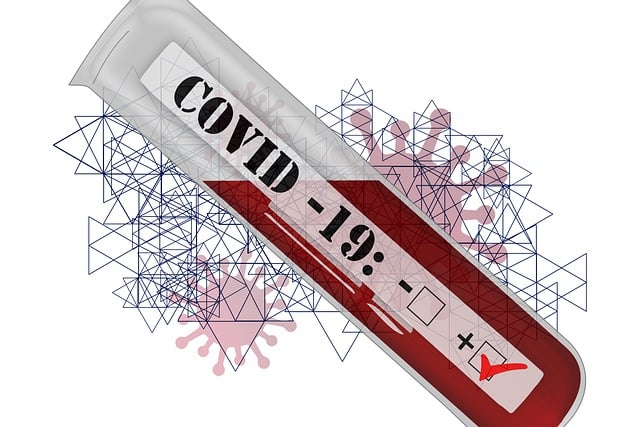Iron deficiency anemia is a common blood disorder in the UK, caused by dietary deficiencies or health issues, leading to fatigue and weakness. Early detection through the UK General Health Blood Test, measuring hemoglobin and red blood cell count, is key for timely intervention. This test reveals critical indicators like low hemoglobin, MCV, and MCH, helping healthcare professionals manage the condition effectively with supplements, lifestyle adjustments, or medical interventions after consultation.
In the UK, iron deficiency anaemia (IDA) is a common health concern, affecting individuals across all ages. This condition arises from insufficient iron levels in the blood, leading to reduced red blood cell production and oxygen transport. While symptoms vary, IDA can cause fatigue, weakness, and shortness of breath. This article explores how UK general health blood tests play a pivotal role in early detection and management. By understanding the impact of IDA and interpreting blood test results accurately, individuals can access timely treatment options to restore overall well-being.
- Understanding Iron Deficiency Anemia and Its Impact
- The Role of Blood Tests in Diagnosis
- Interpreting Results and Treatment Options
Understanding Iron Deficiency Anemia and Its Impact
Iron deficiency anemia is a common blood disorder affecting individuals across the UK, particularly those with poor dietary intake or underlying health conditions. It occurs when your body lacks enough healthy red blood cells, which are responsible for carrying oxygen throughout your body. Iron, an essential mineral, plays a crucial role in producing these cells. When iron levels are low, it can lead to fatigue, weakness, and shortness of breath, among other symptoms. This condition is more than just a simple discomfort; it can significantly impact daily life and overall well-being if left undetected and untreated.
A UK General Health Blood Test is a straightforward way to identify iron deficiency anemia. By analyzing a sample of your blood, healthcare professionals can measure the level of hemoglobin—a protein in red blood cells that carries oxygen—and the number of red blood cells. Low values may indicate iron deficiency, prompting further evaluation and appropriate treatment. Early detection through such tests is vital as it allows for timely intervention to prevent the condition from worsening.
The Role of Blood Tests in Diagnosis
In the diagnosis of iron deficiency anemia, blood tests play a pivotal role. These tests are essential tools that help healthcare professionals in the UK determine the presence and severity of this common blood disorder. A UK General Health Blood Test typically includes a complete blood count (CBC), which measures different types of blood cells, including red blood cells (RBCs). Iron deficiency anemia is characterized by a lower-than-normal number of RBCs, leading to reduced oxygen transport throughout the body.
Through these tests, doctors can assess the level of hemoglobin, the protein in red blood cells that carries oxygen. Low hemoglobin levels are indicative of iron deficiency. Additionally, blood tests can reveal other indicators of anemia, such as decreased mean corpuscular volume (MCV) and mean corpuscular hemoglobin (MCH), which provide further insights into the underlying cause. Early detection through UK General Health Blood Tests is crucial, as prompt intervention with iron supplementation or lifestyle changes can help manage symptoms effectively.
Interpreting Results and Treatment Options
Interpreting test results is a crucial step in understanding your health status. If an iron deficiency anemia is suspected, healthcare professionals will analyze red blood cells (RBCs) and hemoglobin levels to confirm the diagnosis. In the UK, a General Health Blood Test often includes these key indicators. Normal hemoglobin levels typically range from 13.5 to 17.5 grams per deciliter for men and 12 to 16 grams per deciliter for women. If your results fall outside these ranges, it could indicate anemia.
Treatment options vary depending on the severity of the deficiency. Iron supplements are often prescribed to boost iron levels in the body. Dietary changes, such as incorporating iron-rich foods like leafy greens and lean meats, can also help. In some cases, underlying conditions may require further medical interventions. Consulting a healthcare provider is essential to determine the most appropriate course of action for managing and treating iron deficiency anemia effectively.
In conclusion, iron deficiency anaemia is a common yet serious health issue that can be effectively managed through early detection using UK general health blood tests. By understanding its impact and interpreting blood test results accurately, individuals can access appropriate treatment options to restore overall well-being. Regular check-ups and awareness of symptoms are key to navigating this condition, ensuring a healthier future.
